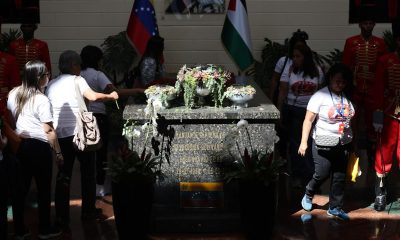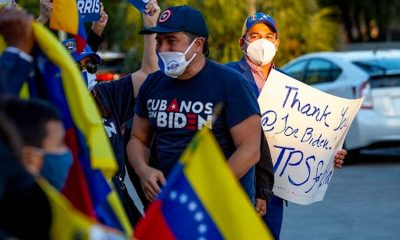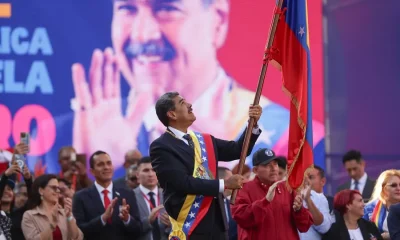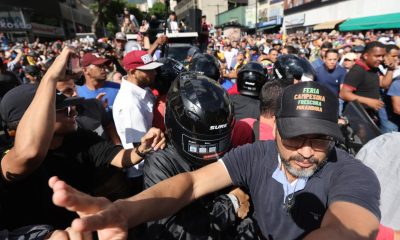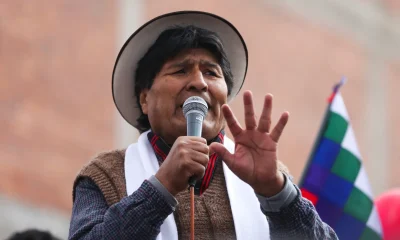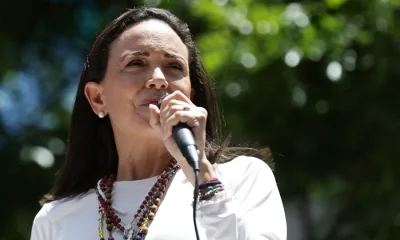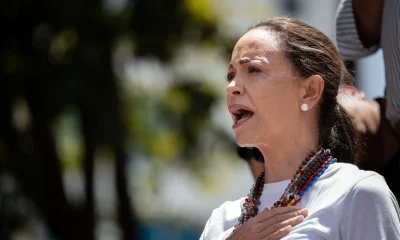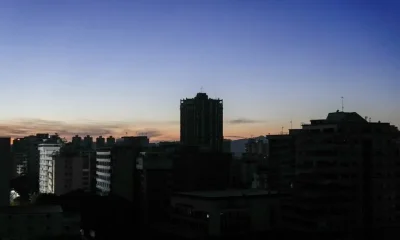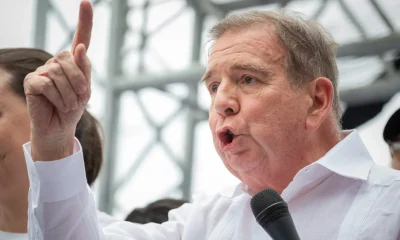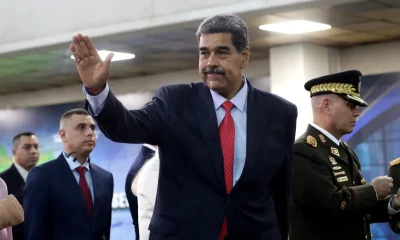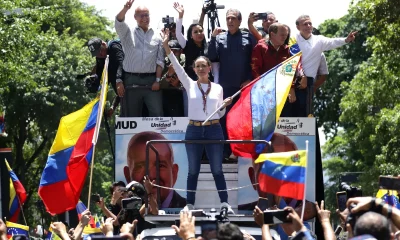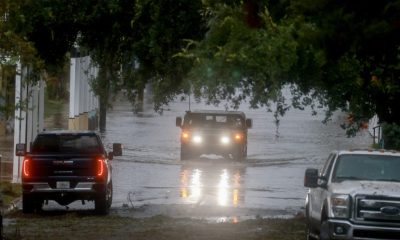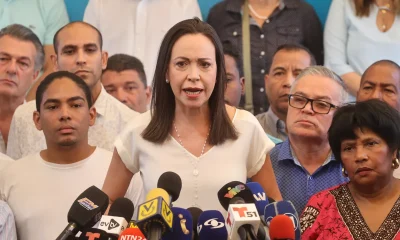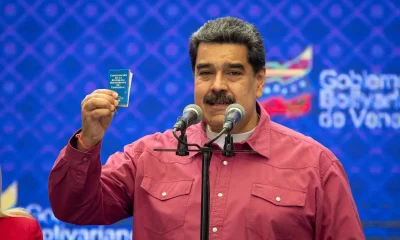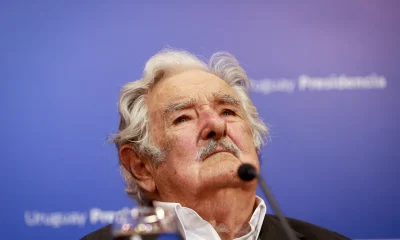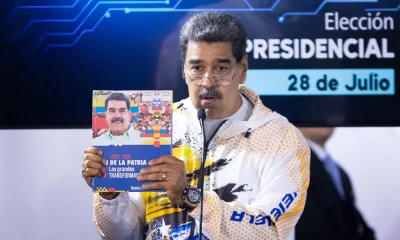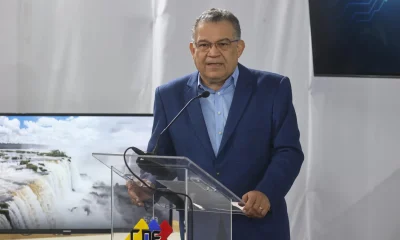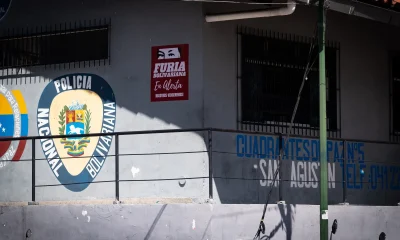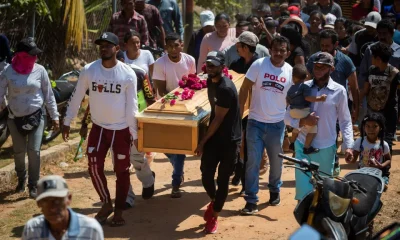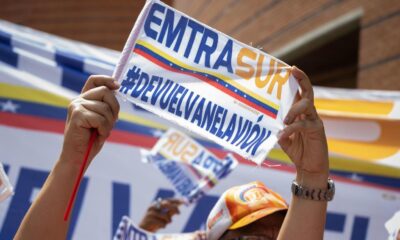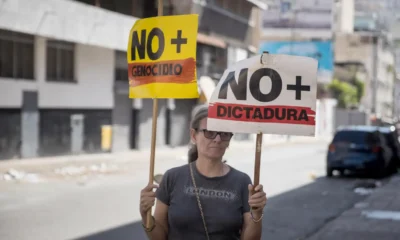International
Venezuela submits report to UN Human Rights Committee
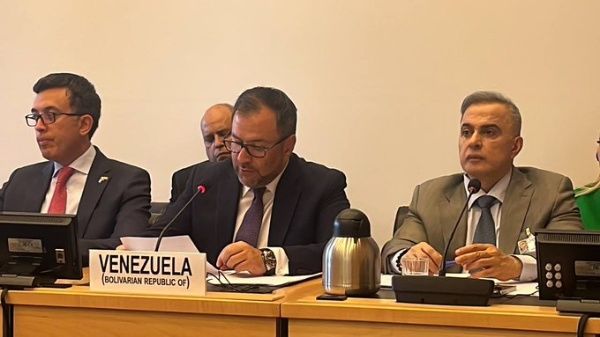
October 11 |
Venezuela presented its fifth periodic report at the 139th session of the United Nations Human Rights Committee, in which it highlighted progress, achievements and challenges in this area for the country.
The Minister of Foreign Affairs, Yván Gil, added that since 2021, the National Assembly has sanctioned more than 67 laws “key for the promotion and direction of civil and political rights of the Venezuelan population”.
The Bolivarian Government projects a sustainable economic development “with an increase in the levels of national productivity of the public and private sector” for the remainder of 2023 and by 2024.
Gil presented the country’s Fifth Periodic Report on the protection and guarantee of rights enshrined in international legislation and the Bolivarian Constitution, before the 139th session of the UN Human Rights Committee.
The head of the Venezuelan diplomacy distinguished that the figure of national dialogue “has been a sustained policy of the Executive, promoting the solution of differences within the framework of the rule of law, through more than 500 public calls for dialogue among Venezuelans”, he considered.
He indicated that measures have been taken in Venezuela to increase awareness of the Pact and its applicability in national law, such as the establishment of the first National Human Rights Plan 2016 – 2019, whose projects, actions and resources necessary for its implementation were incorporated in the institutional operational plans of the organs of the State Powers.
As part of political rights, the Minister pointed out that during the period 2012 – 2020, 10 national electoral processes were held, including three presidential elections.
In closing his participation, Minister Gil stressed that in Venezuela they attach vital importance that the issue of human rights “be treated objectively and impartially, without selectivity, double standards or politicization, in a spirit of genuine dialogue and cooperation, in accordance with the principles enshrined in the Charter of the United Nations”.
On the other hand, the Foreign Minister denounced before the committee that his country is the victim of a multiform aggression driven by the US, with the imposition of coercive measures.
“We have been the object of a multiform aggression promoted by the Government of the United States of America that has negatively affected the enjoyment of human rights of the Venezuelan population,” said Gil during the presentation.
Gil reiterated that the U.S. Office of Foreign Assets Control (OFAC) and other agencies of different countries adopted more than 930 restrictive or punitive unilateral coercive measures related to Venezuela, which caused the reduction of the State’s capacities to obtain financial resources, as well as goods and services necessary to satisfy the main needs of the citizens of that Caribbean nation.
“This onslaught against Venezuela has included the adoption of a set of unilateral coercive measures whose impact has been documented and condemned by the Human Rights Council, the United Nations High Commissioner for Human Rights and various special procedures of the Human Rights Council,” he commented.
The Venezuelan delegation present in Geneva, together with the Minister of Foreign Affairs, includes Attorney General Tarek William Saab; the second vice-president of the Supreme Court of Justice and president of the Civil Cassation Chamber, Magistrate Henry Timaure.
Also the Deputy Minister of Foreign Affairs for Multilateral Affairs, Rubén Darío Molina; the Deputy Minister of Domestic Policy and Legal Security of the Ministry of People’s Power for Domestic Affairs, Justice and Peace, Alana Zuloaga and the Permanent Representative to the UN in Geneva, Ambassador Hector Constant, among other officials.
International
Football Fan Killed in Clashes After Colombian League Match
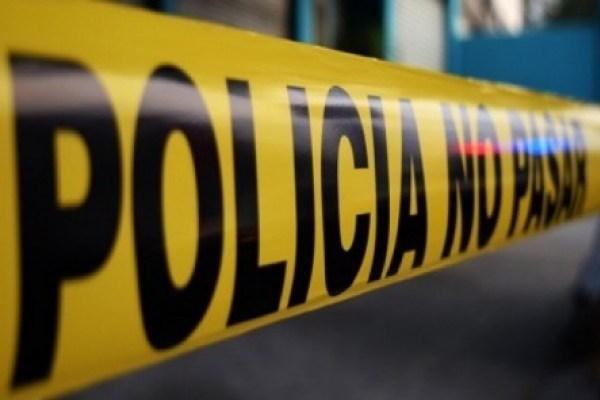
Fans of Cúcuta Deportivo and their traditional rivals Atlético Bucaramanga clashed outside the stadium following their local league match on Tuesday, leaving one supporter dead and several others injured.
The deceased fan was stabbed, according to a senior police official in Cúcuta who confirmed the cause of death in a video statement. Local media reported that the victim was a supporter of the visiting team, Atlético Bucaramanga.
The match ended in a 2-2 draw. Authorities had banned the entry of Atlético Bucaramanga’s organized supporters into the stadium in an effort to prevent disturbances.
Despite the restrictions, violence broke out in the surrounding areas after the game. Among the injured were three police officers, an institutional source told AFP.
The incident adds to a series of recent violent episodes linked to Colombian football. The most recent occurred in December, when supporters of Atlético Nacional and Independiente Medellín clashed in the stands and on the pitch, leaving 59 people injured.
International
Missing Spanish Sailor Rescued After 11 Days Adrift in Mediterranean

The man had departed from the port of Gandía, on Spain’s eastern coast, with the intention of reaching the southern Spanish town of Guardamar del Segura, a journey of about 150 kilometers, a spokesperson for Spain’s maritime rescue service told AFP.
Search boats and aircraft were deployed on January 17, but the operation was called off on January 22 after efforts proved unsuccessful. Alerts were then issued to vessels navigating the area in case they spotted any signs of the missing sailor.
As hopes were fading, a surveillance aircraft from the European Union’s border agency Frontex spotted the sailboat on Tuesday, along with a person signaling for help, approximately 53 nautical miles northeast of Bejaia, Algeria.
A nearby vessel, the Singapore-flagged bulk carrier Thor Confidence, carried out the rescue and is expected to bring the man to an end to his ordeal when it arrives on Thursday in the southern Spanish port city of Algeciras.
Maritime rescue services shared images on social media showing a small white sailboat drifting at sea and secured alongside the much larger ship.
It remains unclear how the sailboat ended up hundreds of kilometers off its intended route or how the man managed to survive for so long alone in open waters.
International
Rubio Says U.S. Could Participate in Follow-Up Russia-Ukraine Talks

The United States could join a new round of talks this week aimed at ending Russia’s invasion of Ukraine, Secretary of State Marco Rubio said on Tuesday.
Teams from Kyiv and Moscow met last Friday and Saturday in Abu Dhabi in their first publicly acknowledged direct negotiations to discuss the peace initiative promoted by former U.S. President Donald Trump.
“They are going to hold follow-up talks again this week,” Rubio told the Senate Foreign Relations Committee. “There could be U.S. participation.”
However, Rubio suggested that Washington’s role may be more limited than during last week’s discussions, which included Steve Witkoff, the president’s special envoy, and Jared Kushner, Trump’s son-in-law.
The secretary of state indicated that progress may have already been made on security guarantees for Ukraine, one of Kyiv’s key demands in any agreement with Moscow after nearly four years of Russian invasion.
“There is one remaining issue that everyone is familiar with, and that is the territorial claim over Donetsk,” Rubio said, referring to the eastern Ukrainian region that Russia wants Ukraine to cede.
“I know that active efforts are underway to see whether the positions of both sides on this issue can be reconciled. It remains a bridge we have not yet crossed,” he added during the hearing.
Rubio acknowledged that the territorial question would be particularly difficult for Ukraine to resolve.
-

 Central America3 days ago
Central America3 days agoGuatemala seizes over a ton of cocaine hidden in flour at Pacific port
-

 International4 days ago
International4 days agoDelcy Rodríguez seeks political agreements after Maduro’s ouster
-

 International3 days ago
International3 days agoHistoric snowstorm paralyzes Toronto after 60 centimeters of snow
-

 International3 days ago
International3 days agoSpain’s irregular migrant population rises to 840,000, study finds
-

 Central America2 days ago
Central America2 days agoGuatemala Police Arrest Prison Guard Caught in the Act of Extortion
-

 International4 days ago
International4 days agoFederal immigration agents kill man in Minneapolis, sparking protests and outrage
-

 Central America2 days ago
Central America2 days agoHonduras swears in conservative president Asfura after disputed election
-

 International21 hours ago
International21 hours agoFootball Fan Killed in Clashes After Colombian League Match
-

 Central America2 days ago
Central America2 days agoBukele leads public trust rankings as UCA survey highlights gains in security
-

 International2 days ago
International2 days agoWinter Storm Fern Leaves 30 Dead and Over One Million Without Power Across the U.S.
-

 International2 days ago
International2 days agoDoomsday clock moves to 85 seconds before midnight amid rising global risks
-

 Sin categoría2 days ago
Sin categoría2 days agoEight Killed in Series of Armed Attacks in Ecuador’s Manabí Province
-

 International3 days ago
International3 days agoRights group says nearly 6,000 killed in Iran protest crackdown
-

 International21 hours ago
International21 hours agoRubio Says U.S. Could Participate in Follow-Up Russia-Ukraine Talks
-

 International21 hours ago
International21 hours agoMissing Spanish Sailor Rescued After 11 Days Adrift in Mediterranean
-

 International2 days ago
International2 days agoSpain approves plan to regularize up to 500,000 migrants in Historic Shift
-

 Central America21 hours ago
Central America21 hours agoGuatemala President Says Starlink Terminal Found Inside Prison
-

 International3 days ago
International3 days agoVenezuela frees at least 80 political prisoners, NGO says
-

 Sin categoría2 days ago
Sin categoría2 days agoEl Salvador Launches Fourth Year of Ocean Mission to Protect Marine Ecosystems
-

 International3 days ago
International3 days agoEU launches new probe into X over AI-generated fake nude images
-

 International3 days ago
International3 days agoSevere winter storm grips U.S., leaves multiple dead as extreme cold persists
-

 International3 days ago
International3 days agoFrance debates ban on social media for children under 15





























